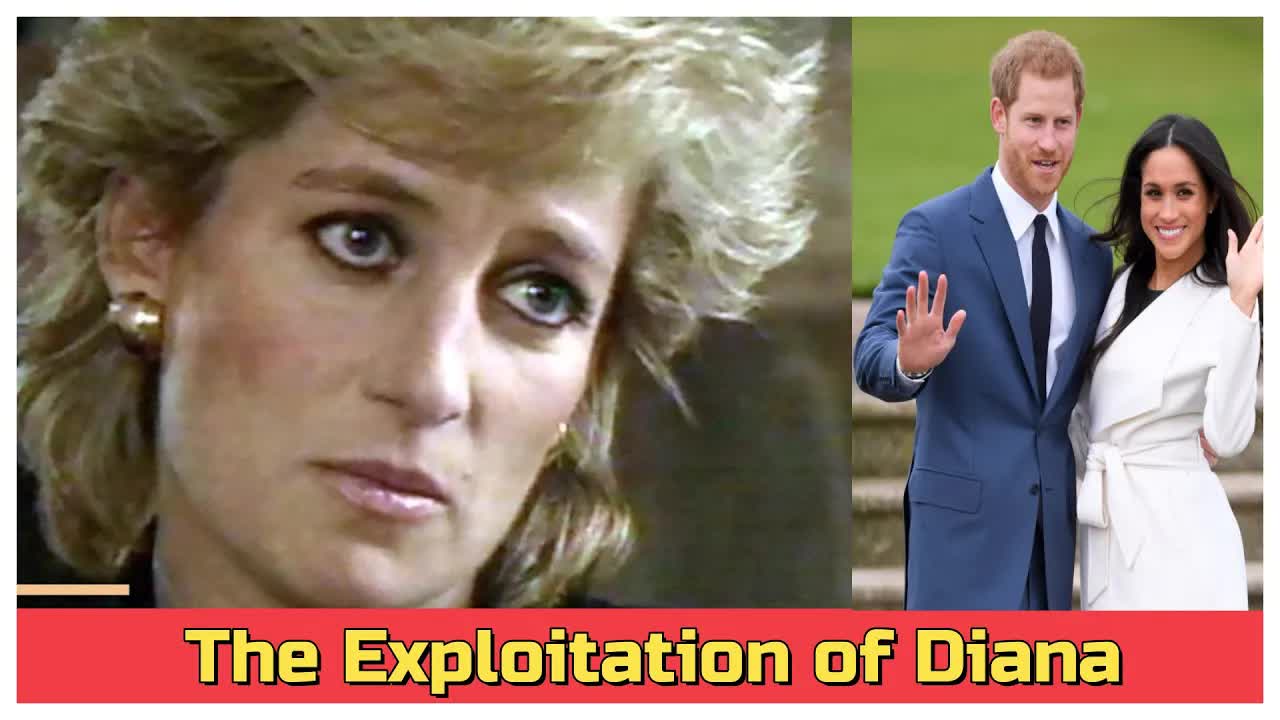In a candid reflection, a passionate commentator has shared her thoughts on the ongoing saga surrounding Prince Harry and Meghan Markle, particularly in relation to the legacy of Princess Diana.
The speaker, who has long admired Diana for her grace and compassion, believes that Harry’s current actions are not only disrespectful to his mother’s memory but also exploitative.
This perspective sheds light on the complex dynamics at play within the royal family, especially as they navigate public scrutiny and personal trauma.
The commentator begins by expressing gratitude for the supportive messages she receives about her videos, which fuel her desire to discuss topics close to her heart.
Chief among these is Princess Diana, a figure who has profoundly influenced her life.
She recalls how, as a young Black American girl, she was captivated by Diana’s charisma and kindness, despite their vastly different backgrounds.
It was through media portrayals, rather than formal education, that she became aware of Diana’s impact and struggles.
As she delves deeper into the subject, the speaker acknowledges Diana’s imperfections but emphasizes that it is her core character that made her truly remarkable.
This admiration extends to Diana’s children, who, according to the commentator, should embody the greatness of their mother.
However, she expresses dismay at how Harry seems to be leveraging his mother’s tragic death for personal gain, particularly in collaboration with Meghan.
The discussion shifts to the controversial Martin Bashir interview, where the commentator highlights the deceit involved in securing Diana’s participation.
She points out that the BBC covered up the unethical tactics used to obtain the interview, which adds another layer to the ongoing narrative about Diana’s legacy.
The commentator believes that the way Harry and William are handling this family history reflects their differing approaches to honoring their mother.
Prince William‘s recent statement regarding the fallout from the Bashir interview resonates deeply with the speaker.
She notes that it’s uncharacteristic for him to make such a personal declaration, indicating how profoundly affected he is by the events surrounding his mother’s death.
In contrast, she argues that Harry’s actions seem to exploit this trauma, branding it as a means to establish his own relevance in a world where he often feels overshadowed.
The commentator draws a stark comparison between the brothers’ responses to their shared grief.
While William seeks to preserve his mother’s legacy, Harry appears to be using it as a vehicle for financial success and fame.
This exploitation, she argues, tarnishes the very essence of what Diana stood for—compassion and service to others.
As she reflects on Harry’s media appearances, including the infamous Oprah interview, the speaker questions the motivations behind such disclosures.
She suggests that rather than shedding light on mental health issues, Harry is commodifying his mother’s death to build a brand.
This, she believes, is not only distasteful but also detracts from the genuine work that could be done to address the real challenges faced by those struggling with mental health.
The commentator also critiques the couple’s lifestyle choices, questioning the necessity of their extravagant living while claiming to advocate for social change.
She wonders why they have not chosen to lead a more modest life dedicated to philanthropy, instead of focusing on building a celebrity brand.
This perceived hypocrisy fuels her frustration, as she believes they could make a more significant impact by genuinely serving others rather than seeking personal gain.
Ultimately, the speaker argues that the legacy of Princess Diana is being manipulated by her own son, who seems trapped in a cycle of exploitation.
She suspects that Meghan plays a significant role in this dynamic, pushing Harry to capitalize on his royal background for commercial success.
The notion that they are using Diana’s story for their benefit strikes her as particularly tragic, given the pain and suffering she endured during her life.
As the commentary draws to a close, the speaker emphasizes her deep-seated love for Diana, who inspired so many with her kindness and vulnerability.
She laments that even in death, Diana’s legacy is being tarnished by those who should honor her memory.
The speaker’s heartfelt plea is for Harry and Meghan to reconsider their approach, urging them to reflect on how they can use their platform for good rather than personal enrichment.
In this ongoing dialogue about the royal family’s actions, it becomes clear that the complexities of grief, legacy, and public persona are intricately intertwined.
As discussions continue, the hope remains that the true essence of Princess Diana can shine through, inspiring future generations to prioritize compassion over celebrity.










